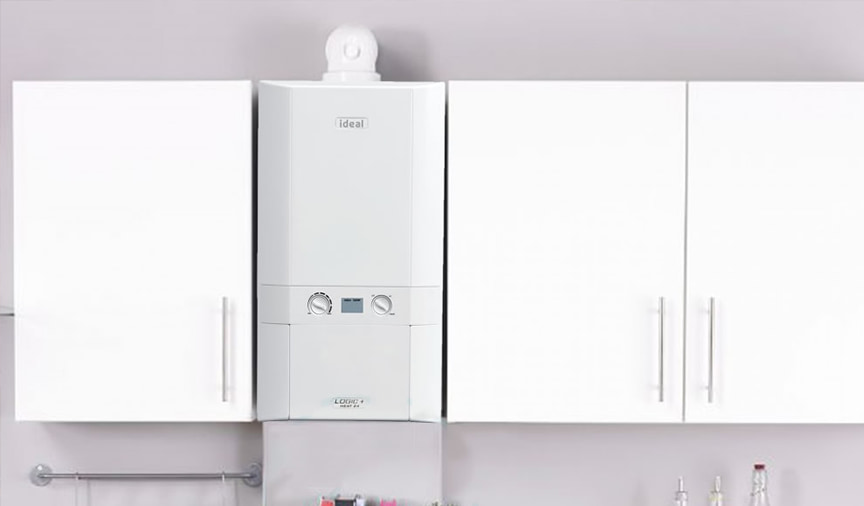Is my boiler pressure too high?

If your boiler pressure is too high (creeping into the red section of the dial), it will need to be reduced. High pressure puts an unnecessary strain on the boiler joints, which can break and cause leaks within the boiler itself, or in the heating system around the property.
How to reduce your boiler pressure in 10 steps:
- Turn on the boiler and set your central heating to the maximum level.
- Check your radiators to see if any need bleeding. The valves should be open in all of your radiators, so that they heat up. This will circulate hot water and you can check for any cold spots.
- Carefully run your hand along the top of the radiator (they may be very hot!). If the radiators are cold at the top and hot at the bottom, this indicates trapped air.
- To remove the air (also known as bleeding the radiator) you will need a radiator bleeding key. Use the key to bleed the radiator at the air vent, usually located at one end of the radiator.
- Before you remove the air, turn the heating off and allow the radiator to cool. Have some tissues handy, to prevent excess water staining the carpet.
- Slowly turn the valve anti-clockwise. Do not completely remove the pin, as it will be hard to replace when the water pours out.
- As the air is removed you will hear a hissing sound. As soon as you hear that sound, stop turning the key.
- Once the air is removed, you should only need half a turn to close the valve. Smaller radiators take 10-20 seconds to bleed. Larger ones can take over a minute. If the radiator seems to be taking a long time to bleed, close the air vent.
- You may need to add some water via the filling loop on the boiler to raise the pressure before the air can be bled again and removed.
- Once all radiators have been bled, check the pressure gauge on your boiler, as removing the trapped air may have caused the pressure in the system to drop. If the pressure has dropped below the designated amount you will need to add water to the system.
Once the pressure gauge shows the correct reading, the boiler can be switched back on and used as normal. Be sure to check the radiators again to ensure the cold spots have been removed.
If you are able to reduce the pressure but the pressure starts increasing again, it’s very important to call an engineer.
We Beat or Match Any Quote
Call 0330 912 4843 and we’ll beat or match any quote.
Serious About Service
24/7 claims support & rated Excellent on Trustpilot
Cover Match Guarantee
Get a £50 gift card if you find something we don’t cover
All Gas Boilers Covered
All makes and models, regardless of age


